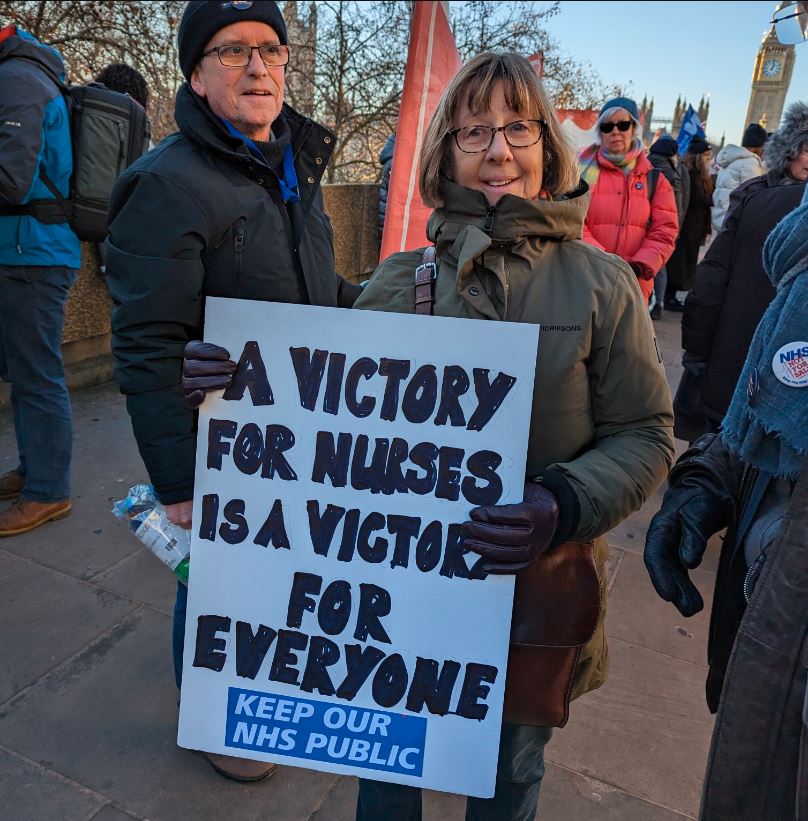Nurses have rejected the government’s deal to end their industrial action and pencilled in two days of escalated strikes from 8pm on April 30 to 8pm on May 2.
Members of the Royal College of Nursing (RCN) voted 54% to 46% to reject the offer of a 5% pay rise and one-off cash bonus for last year, despite it being recommended by union bosses.
While the deal was rejected by RCN nurses, the 150,000 members of Unison – including health workers, paramedics, cleaners, porters and some nurses – voted to accept the 5% plus bonus offer.
The new 48-hour strike by RCN members will not have exemptions for emergency departments, intensive care units or cancer care meaning all NHS services in England will be affected for the first time.
In a letter to the health secretary Steve Barclay, RCN general secretary Pat Cullen said the pay offer to her members was “simply not enough”.
The Guardian reports the NHS in England “appears destined for months of further strikes” after the RCN ballot. The Telegraph says nurses are set “to embark on their most extreme strikes yet, targeting A7Es over the May Day bank holiday weekend, despite hundreds of thousands backing” the settlement.
Nurses began their first ever strikes in December. Then the RCN was seeking a 19% pay deal for its members. Health secretary Barclay rejected the demands. RCN general secretary Cullen urged Barclay to “meet me halfway here”, suggesting a near inflation 10% offer might be acceptable.
However, after months of talks only a 5% deal (plus a one-off payment for workers dependent on their bands) was agreed in March between the government and unions, including the RCN, who recommended it to their members. Only Unite rejected the deal.
In her letter to Barclay following the result of the nurses’ ballot, Cullen added: “After a historic vote to strike, our members expect a historic pay award.”
Responding to the announcement of escalated strikes by nurses, the government said it was “hugely disappointing” and “concerning for patients.”
Director of communications for NHS providers Adam Brimelow called the RCN vote “a setback” and “extremely worrying”, adding: “This week’s four-day walkout by junior doctors has seen hundreds of thousands of appointments and procedures postponed and staff cover spread too thinly despite trusts’ best efforts to manage the risk.
“Trust leaders understand the frustration of nurses, junior doctors and other staff who have seen their pay fall behind inflation year after year.”
Announcing confirmation that RCN members rejected the deal and the imminent 48 hour strike, Cullen said: “The government needs to increase what has already been offered and we will be highly critical of any move to reduce it.
“Since our talks in February, we have seen the pressures on the NHS continue to increase. The crisis in our health and care services cannot be addressed without significant action that addresses urgent recruitment and retention issues and nursing pay to bring this dispute to a close urgently.”
The nurses leader added that without a “significantly improved offer” nurses will be “forced back to the picket line”, warning that “meetings alone are not sufficient to prevent strike action and I will require an improved offer as soon as possible “
Labour MP Richard Burgon told the Independent: ““The government now needs to come forward with the kind of inflation-proofed pay offer that could avoid a new round of strikes and that begins to tackle the tens of thousands of nursing vacancies that we have in the NHS.”
As well as affecting patient care and treatment, and nurses themselves during the cost of living crisis, the wave of strikes have hit the UK’s economic performance. New figures released yesterday showed the economy had flat-lined in February when zero growth was recorded. Chancellor Jeremy Hunt admitted the impact industrial action has had but has refused to give in to nurses’ demands for an improved offer saying higher pay awards would be inflationary and damaging to the British economy.




